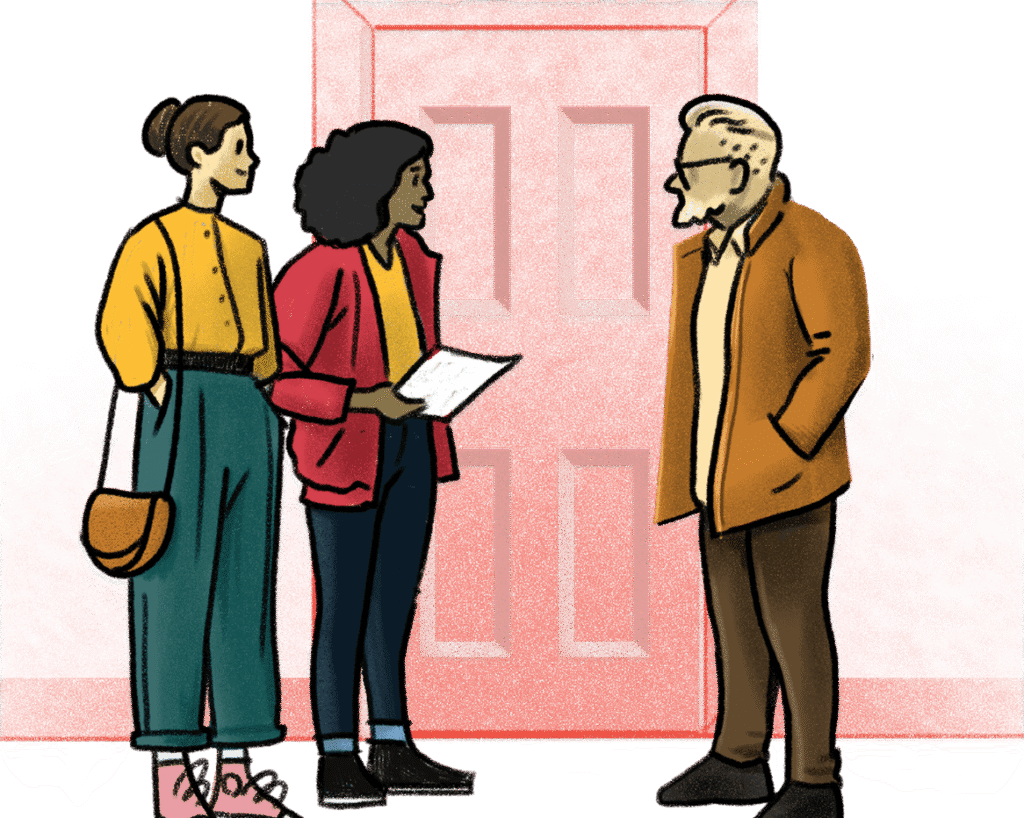Agency support
How we support frontline agencies
We work shoulder-to-shoulder with frontline organizations, troubleshooting barriers and facilitating solutions. Through strategic partnerships, we help maximize the impact of our collective resources and create lasting pathways out of homelessness for Calgarians.

When we work together, we move mountains
Our collaborative approach transforms individual agency efforts into powerful, coordinated action. The numbers tell the story of what’s possible when Calgary’s entire homelessness response system works as one.
1,105
people achieved independence through CHF-coordinated programs. Independence means exiting supportive housing to stable independent living, or community programs and primary systems (e.g. long-term care, addictions treatment, or justice).
243
out of the 1,105 people who achieved independence were prevented from entering the homelessness system altogether. Prevention programs help keep individuals housed by providing support, such as one-time financial aid.
549
people were diverted from entering the homelessness system out of the 1,105 who achieved independence. Diversion programs help people avoid chronic homelessness via supports or interventions.
29
frontline agencies supported across Calgary’s homelessness response sector.
105
programs & projects that fight homelessness funded by Calgary Homeless Foundation.
257
Housing Strategists trained by Calgary Homeless Foundation (in partnership with Distress Centre Calgary).
Connecting people to housing
CHF coordinates a centralized system that screens, assesses, and matches people experiencing homelessness with appropriate housing and services based on need. This includes maintaining a centralized and comprehensive record of a participant’s journey through the supportive housing system. It makes it easier to identify what supports will work for individuals rather than requiring them to repeatedly retell their often-traumatic histories.


Solving cases too complex for any single agency
When complex individual cases exceed a single agency’s capacity, our team coordinates multi-provider responses centered on the person’s unique needs. We strategically match complementary agencies to strengthen service delivery and help find practical solutions for situations that no single organization can solve alone.
Addressing pressing daily challenges
Our approach is resolutely hands-on, helping agencies address their real, pressing and inescapable day-to-day challenges. We work shoulder-to-shoulder alongside agencies to create consistency in approaches and make it easier to navigate the system for clients.


Investing in critical housing relationships
We partner with housing partners like HomeSpace to create affordable homes with the right supports so residents can thrive. Supportive housing means more than a building, it’s a safe welcoming space paired with services that foster skills to enable long term housing. Through collaboration, investment and problem solving, we protect these partnerships and connect people to housing that truly works.

How we strengthen the sector through innovation and evidence
We drive system-wide improvements through cutting-edge technology, comprehensive training programs, and ongoing evaluations. By strengthening cross-agency coordination and capacity and promoting data-driven decisions across the sector, we ensure our community’s response grows as our city does.

How we gather data and generate insights
Our community-informed data warehouse helps agencies and governments make evidence-based decisions. We track individual pathways through the system over time, forecast emerging trends, and assess program effectiveness to ensure resources are being allocated to make the greatest impact.
